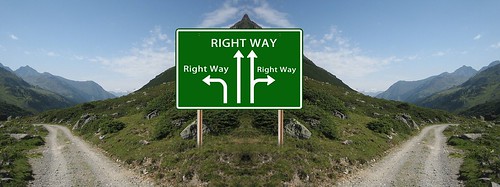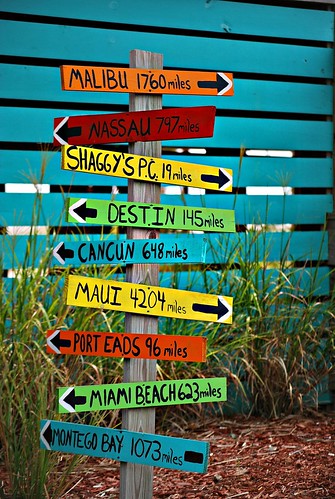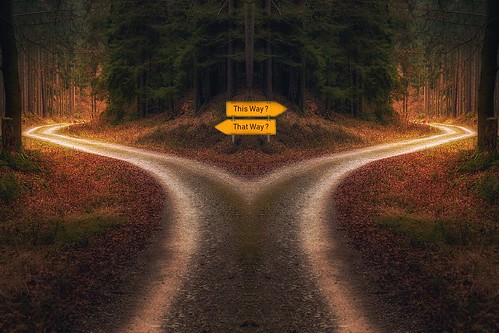Through the Eyes of an Educator: Changing Direction
It’s summer. The season of sandy feet, sun-kissed cheeks, and firepit chats that go on till dawn has returned. While the world is still in chaos and a global pandemic is still afoot, school’s out, camp’s in session, and children everywhere are in summer mode.
It’s that time where everything is flooded with sunlight, fireflies dance amidst the sky, ice cream is a daily meal, dreams are big, possibilities are endless, and imaginations run wild.
Summer is a true metaphor for the benefits of mindfulness. The season provides opportunities to slow down, breathe a bit deeper, give ourselves time to reconnect with who we are, and seek deeper meaning amidst it all.
And sometimes, in that space in between, another direction emerges, and we believe in the possibility of our own dreams.

In the past few weeks, I’ve had multiple conversations about changing direction, shifts in focus, and endings and beginnings. After a bunch of decades, a friend is retiring from teaching and coaching and heading off onto a new adventure. A friend who worked at my university for as long as they can remember has found their next endeavor in a different helping environment. And, a lifelong mentor has taken some time to step away from one career, regroup, and begin a new self-employed business venture that taps into her authentic ability to help people clear physical and mental space in their own lives to make room for more of what sets their souls on fire. Between my own constantly shifting story and these three other markers, it seems there’s a conversation going on beneath the surface.
Perhaps it’s time it came into the light.

When kids are little, we ask them what they want to be when they grow up. They share their dreams that change with every minute, hour, day, and certainly year. We recall a time when they wanted to be a doctor, a fire engine, a baker, or any other number of options, yet as we shift towards the latter years of schooling, it seems we get into this game of pigeonholing ourselves and our students. Sure, some people know exactly what they wish to do from their earliest memory and go forth to conquer those dreams. Others take circuitous paths and wind up somewhere they never thought about, yet love everything about. And, in adulthood, we go through swings, roundabouts, resignations, redundancies, more schooling, different choices, side hustles, and more; yet we rarely ask that question again. I don’t know about you, but aside from happy and healthy, I still don’t know what I want to be when I grow up.
And unless we broach the subject ourselves, in society, we don’t talk much about the possibility of a shift in direction.

When we think about it, much of the use of the word change is done in the negative. In the musical Wicked, a ‘change in the weather’ is Madame Morrible’s way of bringing doom to help her get her evil way. We talk about hurricanes changing course to slam into a coastline, and when there’s a ship directional change ‘off course,’ it’s not headed where it needs to go.
What if we reframed the narrative?
How can we share the idea of changing direction as an empowering one that allows us to utilize our talents in a new way, set a new course for the people we are today, and challenge ourselves to use a change as an opportunity to grow?
How do we both encourage our students to choose where their hearts or heads wish to go at one point in life while allowing space and a positive eye towards the possibility to begin again and again as many times as they may wish?
How do we share that story? We do it ourselves, we empower others to do it, we normalize not staying in one spot forever, and we talk about it as another equally acceptable approach to life.
The middle schooler is not the same kid they were when their dream was to be a fire engine at the age of eight. The high schooler is not the same child who was petrified on their first day of scouts. The senior is today a proud, capable school ambassador and no longer the freshman concerned with dodging the crowds to find the best route to class. If our students' goals, perspectives, and dreams change along their developmental journey, it’s safe to say that those will continue to shift along their life trajectory.
It’s more than okay to change your mind, change your choice, learn better, do better, shift a story, find a new purpose, and change direction. It’s more than okay to do it as many times as it’s necessary for your soul to feel that it’s in the right place for this time in your life. Perhaps that’s twenty years in one profession and another twenty in something different. Perhaps it’s one thing that pays the bills and another that stokes a passion. Perhaps it’s the job out of college versus the one years later after going back to school for something completely different.
Any of us who graduated university more than ten years ago can attest to the fact that half of what is an available job, profession, gig, or career today didn’t exist as an option upon our commencement. Maybe school isn't an option at one point and it is later in life. Maybe life circumstances caused the change, or perhaps in a world that tells us to be productive and live in material abundance, we decide to choose a different course entirely.
Maybe our vision for our future’s focus is positively changed by our growth mindset and our values and vision now truly align. Whether the change of direction is induced by a circumstance beyond our control or one fully within it, the opportunity is there to find another chapter of your own story and watch the soul take flight.

In the musical If/Then, the main character’s story is offered multiple paths, and the show provides us glimpses of what life would look like a short ways down each one. In real life, we’ve seen bankers become social workers, medical professionals turn to law, businesses sold for passion projects, and location independent remote workers do one thing by day and a whole ‘nother by night... not to mention the entrepreneurs who wear about a zillion hats at a time, giving them ample opportunity to showcase many talents all under one umbrella.
We have the right to change our story. Think about it: some of the best ones we read have plot twist after plot twist that the audience never expected, but, whether in alignment or complete surprise, still fits the narrative for that moment in time.
Let’s empower our students with the tools, coping skills, resources, and determination to do just that: change their minds, change their story, and do it as often as they need.
If we can infuse that amidst the social emotional learning scope of newer educational plans, we’re allowing our students to give themselves all they need for the bumps along the road, for the ebbs and flows of a winding path, and for a beautiful, thriving, epic life story.

Five tools for changing direction amidst the journey
Travel & maps
Every journey has twists and turns. Sometimes the hotel doesn’t match the booking image, sometimes it rains the entire time you’re in the islands, or other times you popped into a city you didn’t think much of and now can’t wait to move and live there for years. As the map shows a plethora of ways to get to a desired location allowing for derailments, detours, and divergent paths, so does life.
Sometimes, we choose a different route to get to a similar destination, and other times we change the destination altogether; course corrections are part of the journey. If it’s not only all right but even a welcome opportunity in travel, then let’s give ourselves permission to channel that same notion in our professional choices and business lives. Spin a globe, channel a cartographer, plan a journey!
There’s more than one way to get to those professional wins, and sometimes, when the spirit moves you, you channel the explorers and chart a course for a completely new adventure.

Open-mindedness
There are open questions and closed ones in the world. The closed ones allow for a yes or no answer; that’s where the conversation ends. The open ones allow for fluid movement of thought, shared dreams, and wonderings that may veer to another whole topic altogether.
The same applies to mindset. Open-mindedness allows for possibility, change, different perspectives, and valuing options. It begins with tolerance for differences, empathy for community, consideration for people in all points of geography, and the ability to accept that your lived experience is not the same or any more significant than anyone else’s.
Perhaps it’s eating different cuisines, talking with those who don’t share a similar opinion, or learning about something completely foreign to your everyday story. Perhaps it’s creating space for a young child to share their thoughts without judgment, or a willingness to listen without inputting your own opinion. Later in life, that might look like encouraging taking chances on a dream and that now young at heart adult child learns that they’re their own net. Growth happens—encouraging it early helps the transition.

Flexibility & adaptability
A few years ago I took a yoga teacher training course. My teacher, Amy, often reminded us to remain open and curious. In the studio, she may have been talking about new philosophy and challenging poses, but in that life story, that off the mat yoga, the same holds true.
Our flexibility and adaptability are superpowers and can be tapped at all points in life. A yoga class is complete with all sorts of yogis, and each person has their own story. You’ll see advanced students, new beginners, and all sorts of modifications on each mat. That’s the beauty of it— you take what you need and perhaps the next day, it’s different, and the next, different again.
Flexing and adapting are skills that translate throughout our life journey. Sometimes it’s which yoga pose to choose or modification to apply, and others it’s when to walk away from a profession that is no longer serving the you of today and choosing a different tomorrow.
Strengthening that flexibility and adaptability throughout life will allow for smoother journeys in the future.

Curiosity & wonder
A few years ago, I met a whole different crop of humans. These people all had completely different jobs than I had ever heard of—I mean, I didn’t even know they were jobs. Years before that, on a travel expedition, I met people who had visited lands I’d yet to see. And just the other day, I watched people partake in an adrenaline-filled jump I knew about, yet never considered an option.
Each of those experiences sparked my curiosity and wonder genes and challenged me to think differently. They piqued my interest, made me want to research more, and potentially even change my way of thinking, traveling, and experiencing.
Stoking that curiosity and wonder throughout life leads to an adulthood complete with both. That spark of interest in even the most ordinary aspects allows that continued spark in all other aspects. Who knows where that wonder may take you?

Grit
The grit guru, Angela Duckworth, defines grit as a “special blend of passion and determination.” That spirit, that drive, that ability to get back up when the world knocks you down again and again, that focus to continue striving for that single goal, and that fierce belief in the matters of the long game—that’s the stuff of grit.
Maybe a change in direction later in life isn’t all about grit on its own, but many of those tenets are, without question, there. Faith in ourselves takes grit. Continuing with those unseen efforts takes grit. Knowing that you’ll do what’s necessary to get yourself back up off the mat as many times as necessary takes grit. Encouraging those gritty attitudes and giving your young ones space to try, to fail, to try again, to learn, to grow, to challenge, and to change gives them permission to continue on that path and the tools of their own to lift themselves up whenever the world gets them down.
That, in itself, is a vital life skill.

Please click the photo below for a collection of my Through the Eyes of an Educator columns:
Stacey Ebert, our Educational Travels Editor, is a traveler at heart who met her Australian-born husband while on a trip in New Zealand. Stacey was an extracurricular advisor and taught history in a Long Island public high school for over fifteen years, enjoying both the formal and informal educational practices. After a one year 'round the world honeymoon, travel and its many gifts changed her perspective. She has since left the educational world to focus on writing and travel. She is energetic and enthusiastic about long term travel, finding what makes you happy and making the leap. In her spare time she is an event planner, yogi, dark chocolate lover, and spends as much time as possible with her toes in the sand.
Check out her website at thegiftoftravel.wordpress.com for more of her travel musings.























